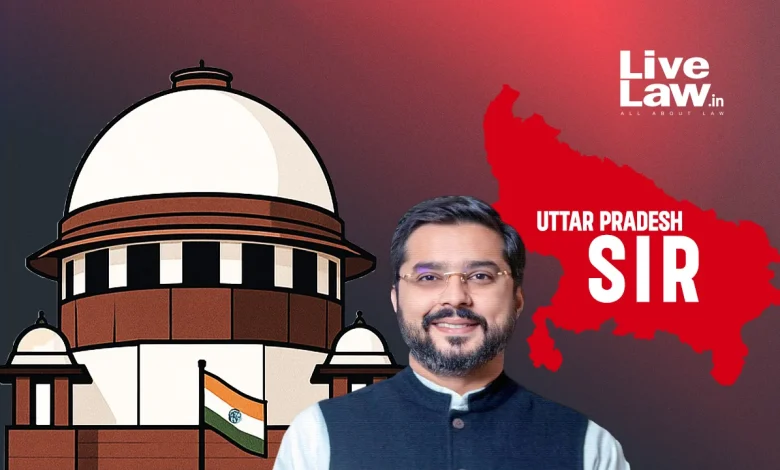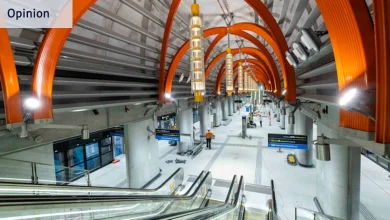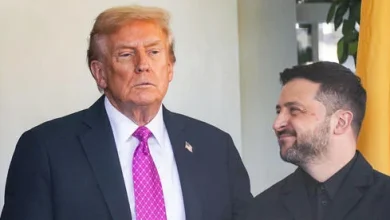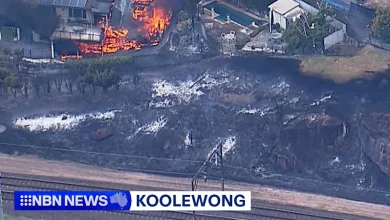Supreme Court Seeks ECI Response On Congress MP Tanuj Punia’s Plea Against SIR In Uttar Pradesh

The Supreme Court today issued notice on a writ petition filed by Congress MP Tanuj Punia challenging special intensive revision of electoral rolls in Uttar Pradesh.
A bench of Justices Surya Kant, SVN Bhatti and Joymalya Bagchi passed the order. It also issued notice on pleas challenging SIR in Kerala and seeking postponement thereof.
Tanuj Punia, a Lok Sabha MP from Barabanki and Chairman of Scheduled Caste Department of Uttar Pradesh Congress Committee, has challenged the notification dated October 27 issued by ECI notifying SIR for Uttar Pradesh.
He seeks quashing of the October 27 notification as well as order dated June 24 issued by the Election Commission regarding conduct of SIR. He further prays for a declaration that SIR in UP is ultra vires the Representation of People Act, the Registration of Electors Rules, and violative of Articles 14, 19, 21, 325 and 326 of the Constitution.
As an alternative, Punia seeks deferment/modification of the timelines prescribed for SIR in Uttar Pradesh, including the schedule for enumeration, draft roll publication, and disposal of claims and objections, so as to ensure full coverage of electors.
The MP claims that if allowed to operate, SIR in UP would carry an immediate risk of excluding lakhs of genuine electors from the rolls of India’s largest state. It is his case that the ECI notification alters the very basis on which electoral rolls are maintained in UP and places onus on an individual voter to establish what the law already recognizes.
“The process introduced requires every elector to reestablish eligibility through documentation that large segments of the State’s population have never possessed. These requirements have no foundation in the Representation of the People Act, 1950, which proceeds on a presumption of continuity and only permits deletion on narrowly defined grounds.”
Punia further points out flaws in the design of the SIR, highlighting how BLOs can record “probable cause” even based on hearsay and how there is a prohibition on electors collecting documents during the enumeration process.
“The exercise is tied to the 2003 rolls, although Uttar Pradesh has added nearly four crore new electors since then, many of whom were neither born at the time nor captured in institutional records. The prohibition on collecting documents during enumeration leaves voters with no opportunity to furnish proof at the only stage when field officers visit their homes. At the same time, BLOs are authorised to record ‘probable cause,’ such as absent, shifted or duplicate, on the basis of brief enquiries or hearsay, even when the elector has not received the form at all.”
The plea also claims that the timelines prescribed for UP are impossible to meet in districts where large areas remain unvisited and where lakhs of households are engaged in harvest, migration cycles or daily-wage work.
“Ground reports already show that the distribution of enumeration forms has not reached substantial portions of the electorate even by mid-November. In many districts, fewer than half the voters have received the forms. In such circumstances, the risk of wrongful non-inclusion is inherent in the structure of the exercise.”
Punia has also contended that SIR in UP may not have the effect of updating the electoral roll, but rather lead to large-scale disenfranchisement. “The Representation of the People Act, 1950 recognises only three grounds on which an elector’s name may be deleted: death, cessation of ordinary residence, or disqualification under Section 16. The SIR, however, introduces an entirely new basis for exclusion, which is the non-production of documentation created by the ECI itself. In practice, electors whose names already stand on the roll are placed at risk of removal because they cannot produce parental documents, legacy records or other forms of proof that the law does not require.”
It is further his argument that Section 21(3) of RP Act permits a special revision only for reasons to be recorded, yet ECI’s notification contains no assessment of the conditions in UP and no explanation of how the State’s demographic scale and administrative capacity can accommodate an intensive exercise within the prescribed time.
The petition has been drawn by Advocates Shariq Ahmed, Omar Hoda and Adnan Yousuf.
Case Title: TANUJ PUNIA Versus ELECTION COMMISSION OF INDIA AND ORS., W.P.(C) No. 1129/2025





